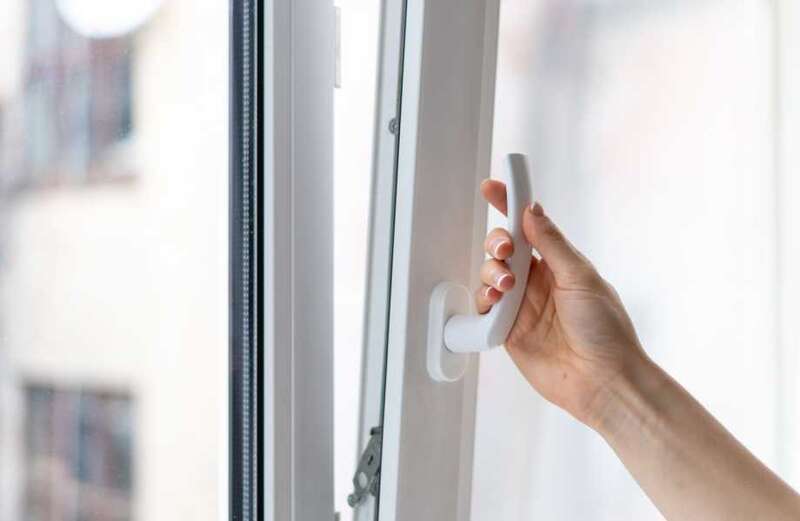uPVC WINDOWS are great asset in any home. They are low maintenance and adaptable for every type of weather.
These windows and doors can last for years with the right care. However if the are not properly cleaned dirt, dust and grime can build up over time.

uPVC windows and doors are pretty easy to clean, here's a step by step guide.
How to clean uPVC window frames?
Cleaning these frames couldn't be easier because they are designed to be waterproof.
The plastic also prevents anything growing on them too so it's easy get these to sparkle and transform your home.
 Are there illegal baby names? Surprising monikers that are BANNED in other countries, from Sarah to Thomas
Are there illegal baby names? Surprising monikers that are BANNED in other countries, from Sarah to Thomas
Here's some simple steps to get your uPVC window as clean as possible:
- Start with the inside and open the window as far as possible, hoover up any dust or dirt using the soft brush fitting on your vacuum.
- Make sure you get into all the hinges and along the inside edge and corners of the frame.
- Once the dust is gone, grab some lukewarm soapy water in a bucket - washing up liquid is perfect for this.
- Use a soft cloth or sponge to wipe down the frame.
- Wipe off the excess water with a dry microfibre cloth or soft towel.
- For the window pane: grab your window cleaner and spray this on the glass, clean this as normal with another soft cloth.
- Repeat the process on the outside.

How to clean uPVC doors?
Cleaning uPVC doors is very similar as it requires hot soapy water.
FABULOUS BINGO: Get a £20 bonus & 30 free spins when you spend £10 today
Open your doors and hoover all the debris and dust out then grab your bucket of water.
For any stubborn stains you can use vinegar and water to lift these.
Mix equal parts vinegar and warm water, if you have a spray bottle handy you can pour it into this, and gentle rub the mixture into the stained patch.
Keep persevering with this until the stain lifts, you can leave the mixture on for 10 minutes to soak too.
Experts at Everest say it's important you use a gentle cleaning tool and avoid using a scouring pad, wire wool or sponge with a scouring surface.
Can you paint uPVC windows and doors?
Many people believe you can't paint uPVC windows and doors but this is not true, they can be painted with a little effort.
Once you've cleaned your windows, if you're painting them the next step is to sand down the surface.
 All about Rachel Nickell who was murdered in front of her son Alex Hanscombe
All about Rachel Nickell who was murdered in front of her son Alex Hanscombe
As plastic is so smooth, gentle sanding creates a texture for the paint to adhere to.
Next you will want to coat the uPVC with a layer of primer, which helps create a high quality finish.
If you're painting the outside then uPVC spray paint is the quickest and best option for a smooth finish.
Tape and cover anything you don't want to be painted, wear a mask as well so you don't inhale any paint particles.
Start spraying and your doors and windows will look fresh in no time.
If you're painting on the inside, opt for a brush instead of spray paint as it tends to be very messy.
Let this air dry and voila you'll have a new, refreshed window to gaze out of.
Things you need to avoid when cleaning uPVC windows
Double glazing experts Home Improvements Glazing Solutions offer these essential tips you need to do to avoid irreparable damage when cleaning your uPVC doors and windows.
Firstly to prevent the removal of their glossy appearance or discolouration, the experts say that it's important to only use items that are suitable for the task.
This is particularly the case with liquids, sprays and chemicals. The specialist suggest you avoid using bleach.
Cif and Jif-type cream cleaners, are also a no-no.
As is Methylated spirits, Nail varnish remover, WD40, White spirits, Wire wool or iron wool and Scouring pads.



































